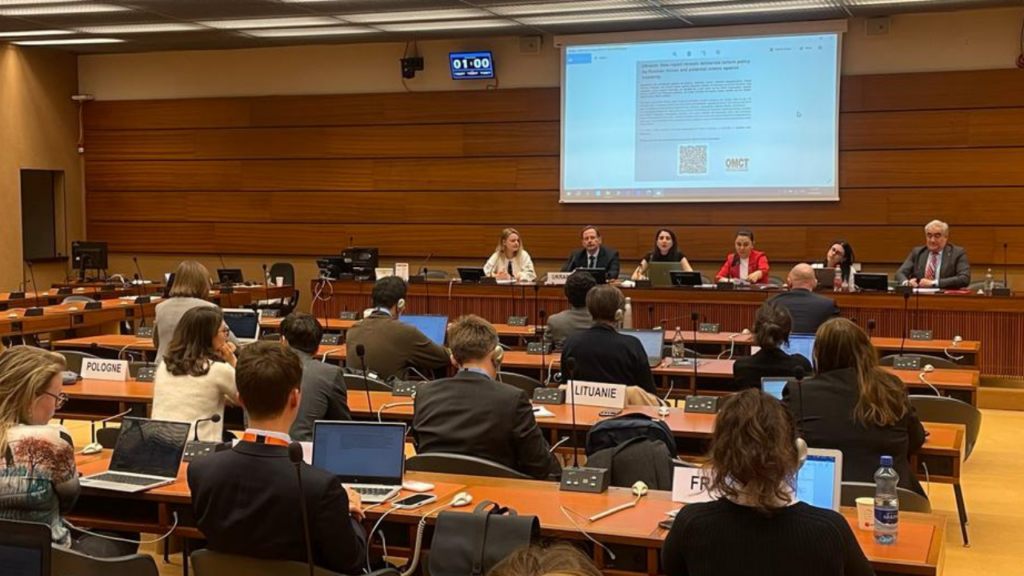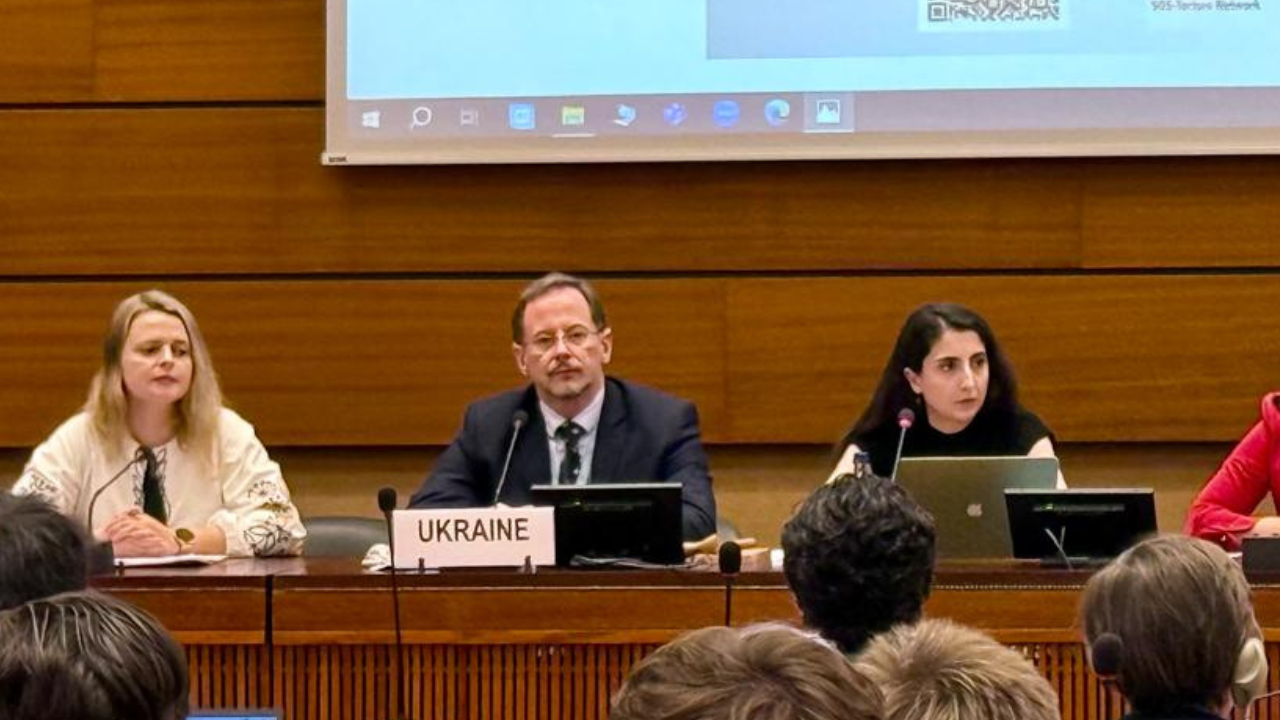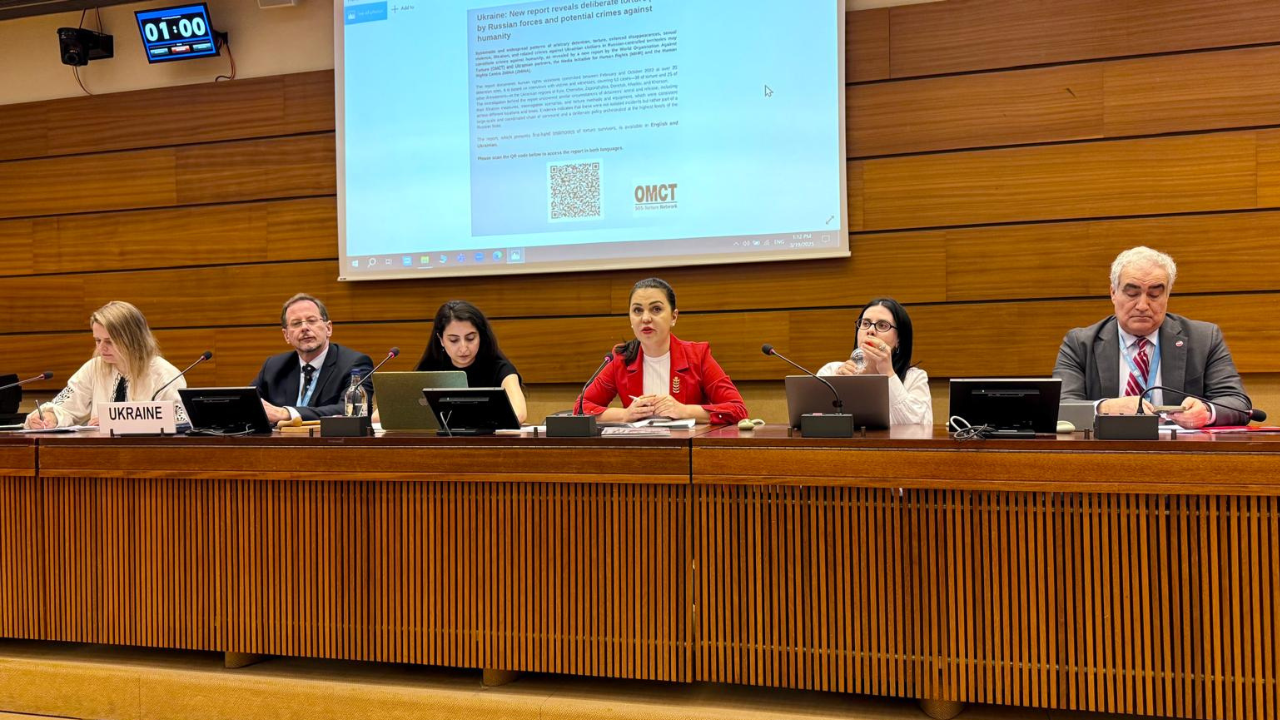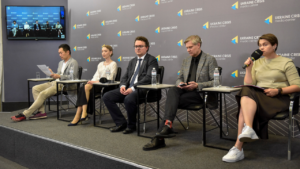Arbitrariness without Borders: Russian Torturers from Crimea Abuse Ukrainians in Newly Occupied Territories

Ukrainian human rights activists and international organizations presented evidence of Russia’s systematic war crimes at the UN. The event “Torture and Arbitrary Detention as Crimes against Humanity” was held on March 19 in Geneva as part of the UN Human Rights Council’s 58th session.
The event was moderated by Ms. Evindar Başboğa, Human Rights Officer at the World Organization against Torture (OMCT). Oleksandr Kapustin, Ukraine’s Acting Permanent Representative to the UN Office in Geneva, opened the meeting.
—Torture is not an occasional occurrence but a systematic and deliberate tool for persecuting Ukrainians. It is part of a broader strategy of the Russian leadership, elevating these crimes to the level of crimes against humanity. Ukraine calls for decisive legal action, including cases under universal jurisdiction, investigations by the International Criminal Court, and sanctions. Justice for the victims cannot be delayed—he claimed.

Oleksandr Kapustin (center), acting Permanent Representative of Ukraine to the United Nations Office in Geneva
Tetiana Pechonchyk, head of the ZMINA Human Rights Center, stated that the torture of civilians has become part of the strategy of intimidation and subjugation of peaceful Ukrainians in the occupied territories. This is confirmed by the results of the report, “You’re loyal to Ukraine – are you a Nazi?” prepared by OMCT, ZMINA, and the Media Initiative for Human Rights last year.
—Today, we are talking about large-scale torture. It has become possible due to the impunity that has persisted since 2014. If we once again fail to respond accordingly, Russia will attack again—perhaps not just Ukraine—Pechonchyk emphasized.
One of the methods to force Ukrainians to recognize the occupation regime has been the arbitrary abduction of civilians. As of now, MIHR has identified at least 1,908 civilians unlawfully detained by Russia.
— Analyzing these crimes, we see that Russia is persecuting a broad group of Ukrainians who refuse to recognize the occupation. They become the first targets, regardless of whether they act proactively. The persecution of civilians can and should be considered a crime against humanity,—Liubov Smachylo, Head of the Analytical Department at the MIHR, stated.
She called on delegates from the United Kingdom, Poland, Lithuania, Greece, Finland, the United States, Germany, Bulgaria, the Netherlands, Switzerland, Iceland, Mexico, Slovakia, Georgia, Lithuania, and Estonia to join the implementation of an action plan for the release of civilians, developed by the MIHR. The key proposal is to divide civilians into groups based on specific criteria, such as age, gender, or occupation, assign them to individual states, and encourage these states to take responsibility for securing their release.
Iryna Baran El Ghali, International Advocacy Manager of the Crimean Human Rights Group, highlighted that arbitrary detentions in Crimea have been ongoing since 2014. In this region, Russia uses unlawful imprisonment as one of its methods of torture.
— Throughout the entire occupation of Crimea, which has lasted for more than 11 years, not a single perpetrator has been held accountable. Our organization is aware of cases where the same criminals who committed arbitrariness in Crimea are now torturing Ukrainians in newly occupied territories, — she emphasized.

Event speakers
Saman Zia-Zarifi, Executive Director of the NGO “Doctors for Human Rights,” believes justice is the key to sustainable peace. He urged the international community to assist Ukraine in adopting the Istanbul Protocol standards, which will help to document Russia’s extensive use of torture.
— We should do more—from monitoring and documentation to gathering evidence and prosecuting perpetrators. Reliable medical evidence is essential to build compelling legal cases. Forensic medical examinations are not always mandatory. However, when conducted properly, they can provide crucial corroboration and help establish broader patterns of crimes, — he noted.
The event took place alongside the UN Independent International Commission of Inquiry on Ukraine’s new report, which determined for the first time that the enforced disappearances of Ukrainian civilians and prisoners of war constitute a crime against humanity. The Commission highlighted the systematic and widespread nature of these crimes and the existence of Russia’s top leadership official policy to carry them out.
The event participants urged the international community to intensify efforts in documenting war crimes, support initiatives for the release of unlawfully detained civilians, and ensure accountability for the perpetrators.
Author: Anastasiia Loza, communications manager at the MIHR






